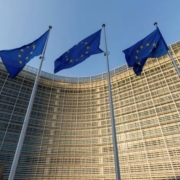The Hungarian National Bank clarified several questions with regards to the repayment moratorium
The National Bank of Hungary (NBH) has published a prospectus on its website in the form of Frequently Asked Questions regarding the repayment moratorium and the supervisory measures related to the pandemic (Prospectus). The purpose of the Prospectus is to adjust questions, arising in the practice to the main provisions of the Government Decree on the payment moratorium and its implementing regulations from the Supervisory Authority’s point of view, including – among others –the so-called opt-out right, delegated into the client’s sphere of competence and authority for the purpose of its exemption from the automatically applicable payment moratorium in case of credit, loan and financial leasing agreements.
In this review we are reflecting some selected findings and recommendations of the NBH for the corporate sector.
- If the customer does not wish to apply the payment moratorium provided by law, he/she must inform the creditor in order to enable it to deduct the repayment (e.g. by direct debit) in time. It can take several days to process customer statements and set them up in the systems. Please let us know about the NBH’s guidelines for this case.
In the NBH’s view, it is natural due to the institutional operational system that the processing of statements takes some time. It is the interest of all parties to keep this period as short as possible. Therefore the NBH expects the institutions to strive at all times to apply solutions that ensure the processing of the declarations as quick as possible, performed within a maximum of 5 working days. The NBH expects furthermore the institutions to apply the content of the declarations in accordance with the debtor’s intention by that date, too. In addition, the NBH also expects the institutions to draw debtors’ attention to the time-consuming nature of the declarations’ processing in their general prospectuses, as well as immediately after the notice on the debtors’ repayment intention. If the customer repays, even with delay, the instalment due in a given month by bank transfer or cash deposit, the NBH also expects the institutions to consider such action as fulfilment of the repayment obligation and waiver of the moratorium in that month.
- How to deal with the case if the debtor has already declared for not applying the moratorium (i.e.: it is in opt-out status) but then it fails to pay when the actual payment becomes due, or, in case of direct debit, there is no enough fund in its bank account?
The relevant government decrees do not contain provisions for this case. Therefore, in the NBH’s view, in case of direct debits the provisions of the contractual environment (business regulations, GTC, etc.) must be followed. In practice, for example, if the institution used to automatically collect the instalment within 10 days after its monthly due date pursuant to these provisions, it shall continue to do so by attempting to debit the given monthly instalment until the due date of the next monthly instalment, at the latest. If this period expires without success, the debtor shall again be considered to fall under the payment moratorium and default interest, fees may not be charged for such instalment during the period of the payment moratorium, either.
If the contractual provisions do not provide guidelines in connection with the above, it is good practice according to the NBH if the institution provides grace period of 1-2, but maximum 5 working days for the payment of monthly instalments, meaning that if the customer pays the monthly instalment within this grace period, the payment obligation shall be considered completed in due time by the institution. According to the NBH’s recommendation, it is also a good practice for the institution to contact the consumer during this period regarding its intention on repayment. In the event of non-performance requiring the customer’s active behaviour (e.g. bank transfer, cash deposit), the contract will automatically fall under the payment moratorium.
- What is the situation with the securities (guarantee, pledge/mortgage) under the payment moratorium? Is it an obstacle to requiring additional collateral, if necessary?
The NBH emphasizes that Article 1 (2) of the Government Decree No. 47/2020 on the mitigation of the impact of the coronavirus pandemic on the national economy sets forth that the modification of the maturity for the completion of contractual obligations also modifies the ancillary and non-ancillary obligations, securing the contract. This provision also applies if the guarantee contract expires before the end of the year: its duration is also extended by the moratorium. It also applies mutatis mutandis to inventory/stock financing: the creditor shall not cancel its pledge, redeem a warehouse receipt until the debtor has fulfilled its payment obligation. In addition to the above and in the NBH’s view it is also important that, if the creditor (for reasons independent of the moratorium) determines the need for additional collateral, the moratorium does not prevent it from demanding the same from the debtor.
- Is it expected to set forth detailed rules on how to proceed with the determination of non-performance and restructuring in the case of clients falling under the moratorium?
According to the NBH the payment moratorium announced by the Government Decree No. 47/2020. shall not result automatically the reclassification of the relevant exposures into (i) the default category under the CRR, (ii) non-performing and/or restructured debts in accordance with the NBH Decree No. 39/2016 (X. 11.) on prudential requirements for non-performing exposures and restructured receivables, nor (iii) the obligatory determination of increased credit risk in accordance with the IFRS 9 standards, the reclassification into Stage 2. In relation to all these, the need for reclassification for each exposure must be determined individually. This was formulated in the Communication issued by the European Banking Authority on 25 March 2020, as well as, partly, in its Recommendation issued on 2 April 2020. This position will be confirmed in the management circular to be issued by the NBH in the near future, expected by the end of the second quarter of 2020, with further detailed rules.
- Do customers who withdraw from the payment deferral during the period of the payment moratorium (i.e.: the opting-out debtors) and fulfil their payment obligation late, bear the legal consequences of the delay?
In the NBH’s view during the period of the payment moratorium customers do not bear the legal consequences of the delay, so there are no legal consequences for late payment either during the so-called grace period or independently thereof.
- Can intermittent loans, where drawdowns adjust to the phases of the construction and the stage of completion, be managed in a way that the institution allows the payment moratorium for instalments not yet disbursed at 24:00 on 18 March 2020, too?
Pursuant to the Government Decree No. 47/2020, the payment moratorium shall not apply to loan instalments disbursed following to 24:00, 18 March 2020, nor to payment obligations arising from them. Nevertheless, the NBH considers as good practice if the institution allows payment moratorium to customers in respect of loan instalments not yet disbursed at 24:00 on 18 March 2020, too, thus providing for the uniform and transparent management of the contracts.
- In addition to principal and interest payments, does the moratorium apply to fees only, and not costs?
In the NBH’s view, according to the Government Decree No. 47/2020, the moratorium applies to capital, interest or fee payment obligations, arising from credit, loan or financial leasing agreements, therefore payment deferral affects the above-mentioned payment obligations only, stipulated in the contracts, it does not apply to costs passed on to debtors. According to the NBH their interpretation is supported by the fact that Article 17/E of the Act no.: CLXII of 2009 on consumers loans refers and names the costs, incurred in connection with the service provided by third party, which can be passed on to the consumer, separately from fees.
- The settlement logic for interests and fees, set forth in Article 2 of Government Decree No. 62/2020, is applicable only in the case of credit transactions with final maturity date, and not for revolving type products with no maturity. In case of these products, neither the extension of maturity, nor the determination of even instalments, or fixing the instalments (due to withdrawal from the available facility in random amounts) can be set. Is it appropriate for interest on overdraft facilities and credit cards, unpaid during the moratorium, to be settled within 12 months from the final maturity date of the moratorium?
The payment moratorium shall apply only to loans already disbursed under contracts existing at 24:00 pm on 18 March 2020. The NBH therefore considers important to emphasize that in case of loans to be disbursed or drawn down in instalments, the amounts disbursed or drawn down after 18 March 2020 shall not fall under the rules of the payment moratorium.
The provisions set forth in Article 2 (2) of the Government Decree No. 62/2020 apply for constructions with duration period only. In case of credits with no duration, the NBH interprets that repayment becomes immediately due after the last day of the moratorium.
Nevertheless, in harmony with the legislator’s approach, the NBH expects in case of products with no maturity also, that the unpaid interests should not be settled in bullet once the moratorium ends. Instead, it should be spread over a longer period in order not to impose disproportionate burden on borrowers. The instalment payment option can be provided for based on Article 279 (16) of the Credit Institutions Act. However, customers must be informed on this non-unfavourable, unilateral amendment of contract in accordance with the applicable legal or contractual provisions. In the NBH’s view it can be considered a good practice for institutions to provide a 12 months instalments payment option for these type of transactions too. The unilaterally determined duration of the repayment option may be shortened by prepayment, or the parties may also deviate from such a period by their mutual agreement.
In addition to the above, the NBH created a separate webpage, dedicated to the measures for economic and financial responses relating to the coronavirus situation. The site’s constantly updated database provides additional and up-to-date information on key regulatory responses affecting the retail, corporate and financial sectors.
















